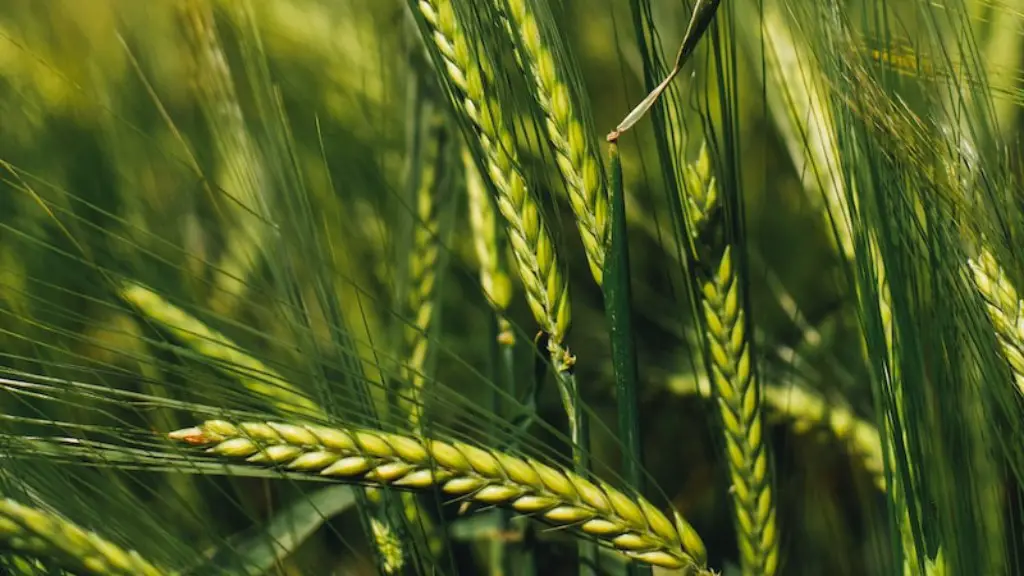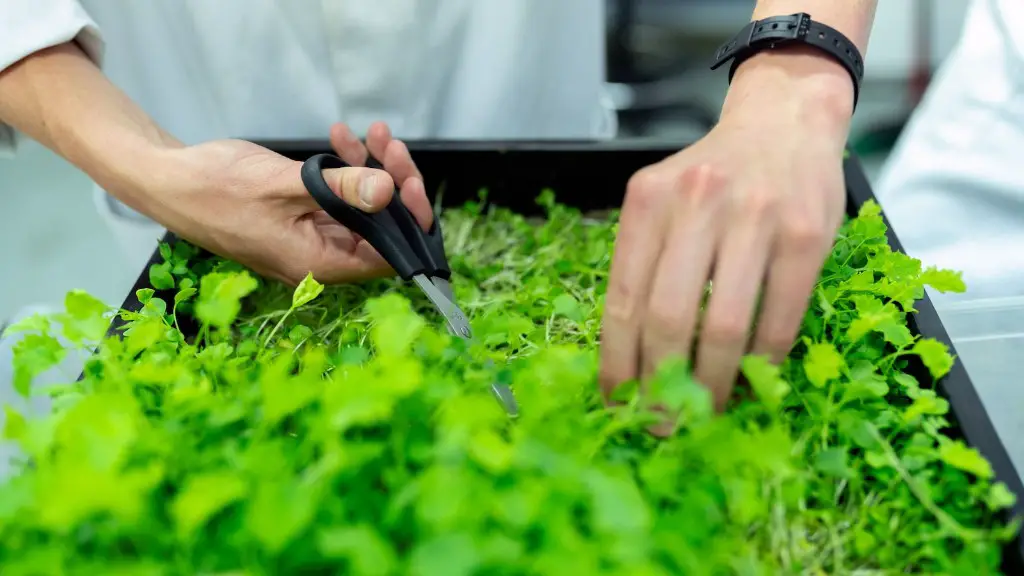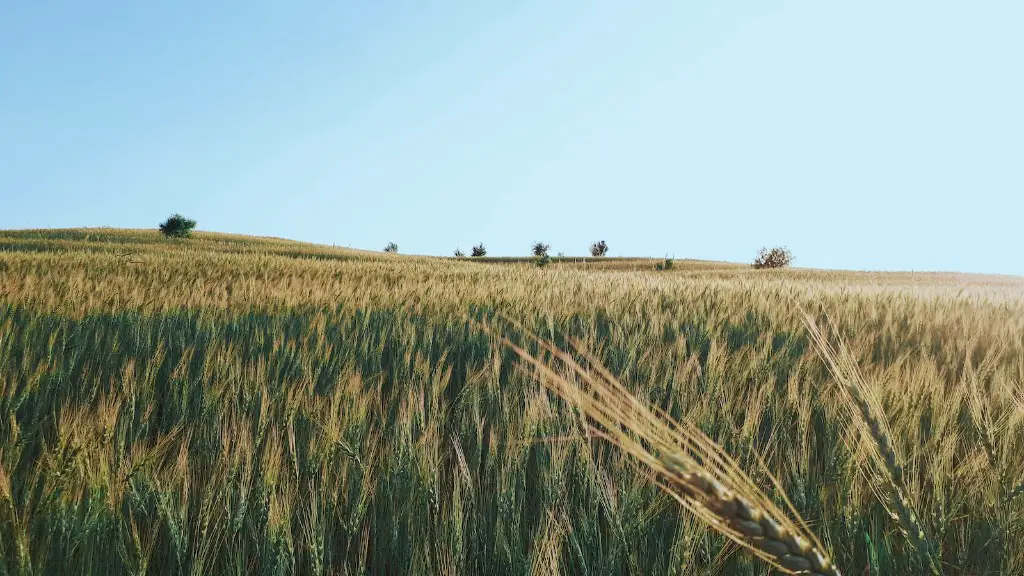Agriculture forms an integral part of the US economy, with Cleveland accounting for a large portion of the agricultural production in the country. As a result, the question of who owns Cleveland’s agricultural land is of great importance. The answer is not always obvious, as many individuals, farms, and organizations own or rent land in and around the Cleveland area. This article provides an overview of the main types of agricultural land owners in the Cleveland area and their responsibilities.
Individuals are the primary owners of Cleveland’s agricultural lands. Many individuals purchase farms with the intention of operating the land themselves or leasing it to outside operators. Some individuals may purchase a parcel of land with the intention of converting it to non-agricultural uses, such as residential or commercial development. They are generally responsible for the maintenance of their land and ensuring compliance with environmental laws and regulations. Individuals may also own agricultural lands to defer expenses through crop insurance and taxes, or to speculate on land values.
Family farms are a common type of agricultural land owner in the Cleveland area. Family farms often have a long history of ownership within a family or community, and are typically managed by multiple generations of family members. Family farms tend to rely heavily on the collaboration of all family members and often have multiple sources of income. Family members are typically responsible for commercial production planning and maintenance of their agricultural land.
Agricultural business organizations are another type of agricultural land owner in the Cleveland area. These organizations acquire and manage farms, usually through contracts with individual owners. They are responsible for setting rental rates and terms, negotiating leases, and collecting rent payments. They also manage the physical aspects of the farms, such as land use and maintenance, and they may be responsible for crop insurance, marketing, and financing.
Investment groups are a type of agricultural land owner that is rapidly growing in the Cleveland area. Investment groups often purchase large parcels of land to rent out to individual owners or organizations. These groups are primarily concerned with the management of their properties, rather than agricultural production activities. As such, they are typically responsible for the maintenance of their property, setting rental rates and terms, and collecting rent payments.
In conclusion, there are a variety of agricultural land owners in the Cleveland area. Individuals, family farms, agricultural business organizations, and investment groups are all responsible for managing their land in compliance with environmental laws and regulations. By understanding the different types of agricultural land owners and their responsibilities, we can better plan for the future of Cleveland’s agricultural industry.
Individual Owners
Individual owners are a primary stakeholder in agriculture in Cleveland. They have the right to purchase a farm and use it to run their agricultural operations by themselves or to rent it out to other operators. Through their ownership, they have the opportunity to defer taxes through crop insurance and benefit from speculation of land values. They also have to take on the responsibility of maintaining the land and ensuring it’s in compliance with environmental regulations.
Individuals may obtain their agricultural land by purchasing it directly or through an auction or broker. When an individual purchases land, it’s important for them to conduct their own due diligence or seek out the help of an expert to evaluate the potential of the farm and its future growth potential. Besides taking care of all the legal requirements, it’s also important to consider the land’s current and potential uses, as this will affect what kind of operations and/or investments one can make.
Individuals are also responsible for the management of their agricultural land; this could include both physical maintenance of the land and related operations, like crop management and soil health maintenance. In addition, they have to abide by all applicable laws and regulations and make sure the farm is compliant with these requirements. Lastly, individual owners have the option to lease their land, which is a great way to turn a profit without having to cultivate and manage the land themselves.
Family Farms
Family farms are an important part of Cleveland’s agricultural landscape. They have a strong history of ownership within a family or community, and they’re usually managed by multiple generations. Generally, the family members divide up the responsibility for managing the farm, taking care of different activities such as crop management, tending to the land, and finding additional sources of income.
Family members are also responsible for the commercial production of the farm, which includes everything from crop planning and planting to harvesting and marketing. It also involves meeting any legal and regulatory requirements. Additionally, family farm members are in charge of paying rent or obtaining loans, if necessary. As a result, family farms tend to be heavily reliant on collaboration amongst the members in order to keep the farm running smoothly.
Overall, family farms provide numerous benefits to their communities, such as the preservation of agricultural practices and providing employment to the local population. They are also a great source of income, with many families relying on the income they generate from a family farm. Thus, they have become an integral part of Cleveland’s agricultural industry.
Agricultural Business Organizations
Agricultural business organizations are also very important stakeholders in the agricultural industry in Cleveland. They purchase and manage farms, usually through rental contracts with individual owners. Because it involves a lot of funding and processes, it’s important for them to ensure the land is maintained and providing an adequate return. Therefore, these organizations are typically in charge of setting the rental rate and terms, negotiating and collecting rent payments from tenants, managing the land use and maintenance, and dealing with crop insurance, financing, and marketing.
Agricultural business organizations are also responsible for making sure their tenants meet all applicable laws and regulations. In addition, they must keep records of all income and expenses related to the farm, and they must exercise good stewardship of the land. They can be a great resource for aspiring farmers, providing them with access to land, financial resources, and even assistance with crop production.
Agricultural business organizations bring an immense level of value to Cleveland’s agricultural industry, providing access to land and resources to those who may not be able to obtain or manage land themselves. They are essential for maintaining the profitability of the industry in the Cleveland area.
Investment Groups
Investment groups are yet another type of agricultural land owner in the Cleveland region. These organizations purchase large parcels of land and then lease these lands out to other owners or organizations. They usually specialize in the management of their properties in terms of land use and maintenance, crop insurance, marketing, and financing. Unlike other stakeholder organizations, they are not directly involved in agricultural production, but they manage and provide resources to those who manage the land.
One of the responsibilities of investment groups is setting rental rates and terms, and collecting rent payments from tenants. Additionally, they must exercise good stewardship of their property and comply with environmental regulations. Again, they are mostly interested in the management of their land, not necessarily the production of crops. As such, they tend to be more concerned with the financial performance of their land than with the production of crops or livestock.
Investment groups are an essential part of the agricultural industry in Cleveland as they provide landowners access to high-quality land and resources that are necessary for successful agricultural operations. By offering access to land, financial resources, and expertise, these organizations ensure the long-term success of the industry in the Cleveland area.




